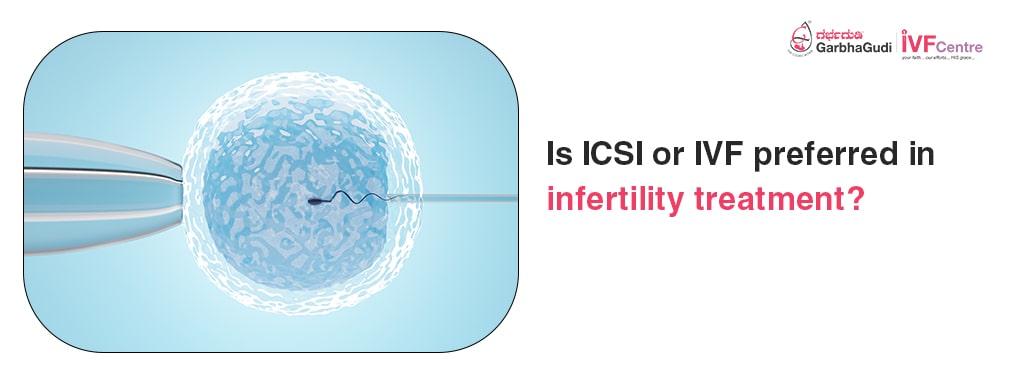Is ICSI or IVF preferred in infertility treatment?

How does ICSI differ from IVF?
Fertility treatments can seem very confusing, especially if you’ve started searching for treatments that are best for you. Here we consider how IVF and ICSI differ and when ICSI would be recommended instead of conventional IVF.
IVF process
IVF places your eggs with prepared sperm in culture media within a laboratory dish. The sperm will naturally penetrate the egg leading to fertilization overnight. The resulting embryos will develop in an incubator for three to five days. An embryologist monitors your embryos, and the best will be chosen for transfer to your womb.
What is ICSI?
With Intra-Cytoplasmic Sperm Injection (ICSI), a single sperm is selected by an embryologist, taken up in a fine glass needle, and injected directly into each egg. Your fertilized egg (embryo) is then transferred into your womb in the same way as an IVF cycle.
Similarities and differences of IVF and ICSI
ICSI is similar to IVF as eggs and sperm are collected from each partner or donor. On the day of egg collection, an embryologist inseminates the eggs and, the following day selects out those that are fertilized. They are kept and monitored in an incubator for up to five days, and the best embryos are transferred into your womb to implant.
ICSI differs from IVF as each egg is injected with a single sperm, bypassing the stage where the sperm has to penetrate the egg naturally.
When is ICSI used?
ICSI is used if the sperm is unlikely to fertilise an egg naturally. This may be when:
• Sperm count is very low
• Sperm can’t move properly
• Sperm has a high rate of abnormality
• Sperm is retrieved directly from the epididymis (PESA) or the testicles (TESA), from the urine, or by electro-ejaculation
• There are high levels of antibodies in the semen
• Previous IVF treatment has resulted in failed fertilisation
• Sperm has been frozen
What ICSI offers
ICSI offers hope to men with very few sperm (oligospermia) no sperm (azoospermia) in their semen. It is also used when there’s been a surgical retrieval of sperm or when there are high numbers of abnormal sperm which cannot fertilize an egg. It can be used in cases where sperm donation is made for patients using frozen sperm or who have previously failed cycles due to low fertilization.
The decision on whether the patient has to go for IVF or ICSI will be taken by the infertility specialist and the embryologist.
Infertility treatments offered at GarbhaGudi
At GarbhaGudi, we have onboard a team of infertility specialists like gynaecologists, embryologists, technicians, and staff who work closely with you to develop a personalized fertility treatment plan. We offer infertility treatments like IUI, ICSI, IVF, Egg donation, and more. As a leading destination for fertility treatments for Indians and foreigners, our fertility centre offers hope to patients worldwide.
Share this page
About Us
GarbhaGudi is a chain of New-Generation Infertility Treatment Hospitals equipped with state-of- art-infrastructure & cutting-edge IVF Technology to address infertility issues & their emotional & mental effects on couples. We have a team of qualified & experienced doctors; their in-depth knowledge & expertise leaves no stone unturned to solve all your infertility issues. The Supportive & caring staff is always by your side to motivate & guide you throughout the journey. GarbhaGudi IVF, the best fertility treatment hospital in Bangalore, provides emotional support to couples facing infertility issues and sexual problems
Contact Us